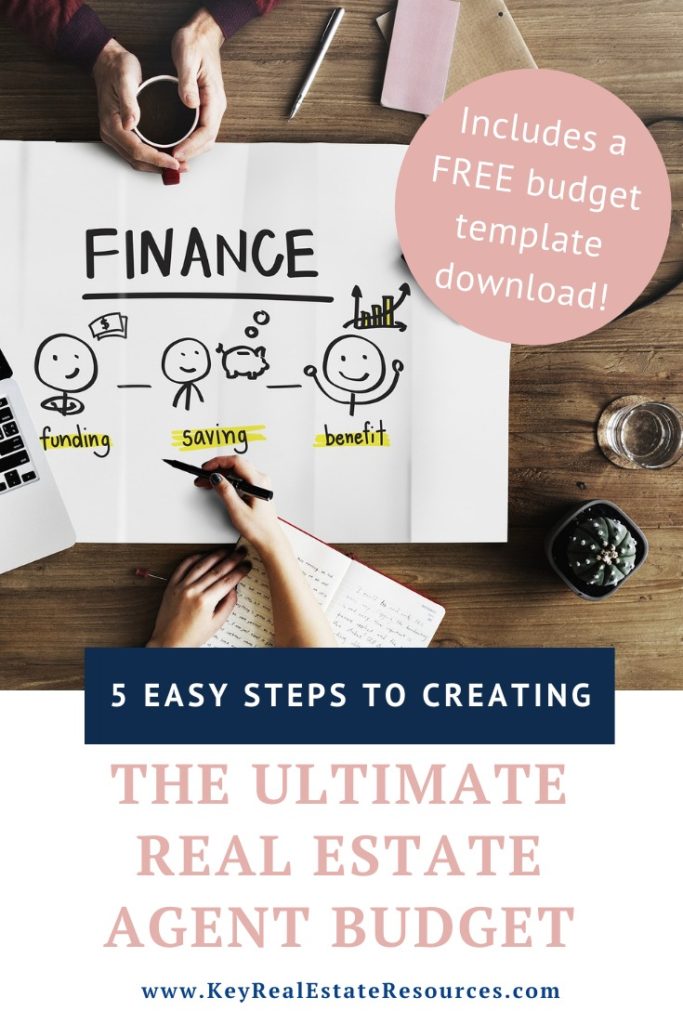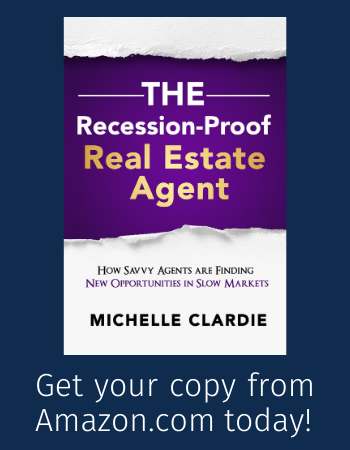5 Easy Steps to the Ultimate Real Estate Agent Budget
Being a real estate agent comes with many (many!) unique challenges. Heavy competition, highly-emotional clients, ever-evolving market conditions…
But the challenge we’re going to tackle today is the Real Estate Agent Budget.
You don’t get to budget like the average American employee. They get to start with a nice, stable income, then simply allocate that amount to different living expenses. You, on the other hand, don’t have the luxury of a stable paycheck. So your budget needs to start with your expenses. Once you know how much you’ll need to spend, you can figure out how much income you’ll need to generate.
You also have lots of business expenses salaried workers don’t ever have to think about. Advertising, membership dues, ongoing education, signage, and excessive gasoline to name a few!
Then there are taxes to consider. You have to save money to pay your income taxes because you don’t have an employer withholding funds for you throughout the year.
It’s a lot to handle! So we’re going to break it all down. We’ll show you how you can create the ultimate real estate agent budget in 5 easy steps.
We even have a Real Estate Agent Budget Template for you. It’s completely free to download. Just enter your email address below to get the template link delivered to your inbox.
If You’re New to Budgeting
If you’ve never made a budget before, don’t worry. A budget is just a list of your income and expenses. It helps you plan your spending so you can rest assured that you can cover your bills and afford the things you really want in life.
The plan is to outline your expected expenses in advance, then do your best to follow through with the plan when you get your paycheck. Naturally, life gets in the way sometimes, so we’ll also plan for the unexpected expenses that are sure to come up at some point.
Ok, enough preamble. Let’s get to it!

1. List Your Personal Expenses
Start by listing your personal expenses:
- Housing
- Transportation
- Insurance
- Food
- Personal Care
- Medical
- Debt Payments
- Etc
Some of your personal expenses and business expenses will overlap (transportation costs, cell phone charges, etc.). Go ahead and list them here.
Sure, you’ll be able to deduct the percentage of business usage of those items come tax season, but you have a car payment and internet expense whether you’re working or not, right? So for the purpose of your budget, it’s helpful to see how much it costs to live your life.
Then, to plan for the unforeseeable expenses that inevitably arise, I like to add an Unforeseeable Expenses line item equal to 10% of my total personal expenses. I don’t know what the unexpected expense will be, but I know one is always coming, and I’m doing my best to be ready for it!
One more thing about your expenses: differentiate between needs and wants (you know, like you’re always telling your buyers to do!). You want to know how much money you’ll need to scrape by. And how much you’d need to be comfortable. So you might find it helpful to run 2 budgets. The Real Estate Agent Budget Template is built to calculate both budgets simultaneously.
2. List Your Personal Savings/Investment Needs
Savings and investments aren’t optional. Especially for real estate agents. With your inconsistent income and total lack of retirement help, you need to invest in protecting your financial future. There are 3 key saving and investment accounts you’ll need: an emergency fund, a retirement fund, and a dream fund.
Emergency Fund
Your emergency fund exists to bail you out when you get into financial trouble. It prevents you from using a credit card to bail yourself out and getting bogged down in all the interest that comes with credit card balances.
In your case, your emergency fund is also a cushion in case you hit a drought or have to struggle through a recession. The more unreliable your income, the more of a cushion you need.
A good rule of thumb for agents is to have 3-6 months’ worth of expenses saved in a high-yield savings account. Save as much as you can each month. And once you have the 3-6 months’ saved, you can stop adding more money to this savings and start funding your retirement and dreams instead.
Retirement Fund
It’s not like you have a pension or employer-sponsored retirement plan to live on when you’re too old to continue working. And if you’re thinking I won’t need to retire because I love my work!, remember you may not have a choice. You might develop physical or mental issues that prevent you from working even if you wanted to continue.
So you need to build your own retirement fund so you can live as comfortably as possible in your old age, no matter what life throws at you.
A SEP IRA is probably your best option for a retirement plan because of its comparatively high contribution limit (you can currently save up to 25% of your compensation, or $55,000, whichever is less) and relative flexibility (unlike a Solo 401(k), you can still use a SEP IRA if you add employees to your business). Your contributions are also tax-deductible. So you can afford to invest more now, which will help your savings grow faster. Then that money will be taxed as standard income when you start using it in retirement.
Dream Fund
Then, like anyone else, you have dreams you want to finance, right? Traveling, starting your own brokerage, sending your kids to college. Don’t forget to save a little from each paycheck to make your dreams come true!

3. List Your Business Expenses
With your personal needs covered, we can talk about your strict business expenses (as opposed to the combination business/personal expenses you’ve already listed).
This covers items like:
- Advertising
- Signage
- Closing gifts
- Membership dues
- Ongoing training and education
- Subscriptions to any tools you need to run your business
- Income taxes
- Etc.
4. Track Your Income and Expenses
So you have your list of monthly expenses. Now you know how much money you need to make each month.
Then you can work backward to estimate the time you need to spend prospecting. How many sales do you need? How many leads do you need to close that many sales? How many prospects do you need to reach to find that many leads?
Then your goal is to stay on track with the income and expenses you’ve just listed. Watch your incoming and outgoing money and see how it compares to your budget. Are you spending more than expected in certain categories? Do you have room to increase your saving, investing, or marketing?
5. Adjust as Needed
You’ll naturally experience fluctuations in income and expenses over time. And of course each month will be a little different because of seasonal expenses (the holidays, summer spending, that 1 month that seems to have all the birthdays!).
As you get used to working with your budget, you’ll start to notice where adjustments need to be made. I like to skim my budget once/month for minor tweaks and re-work my budget once/year or so for major revisions.
The point is, it’s your life and your budget. Create your own ultimate real estate agent budget that works for you!
PS: If you’re struggling to cover your expenses with your real estate sales alone, consider starting one of our 25+ Side Hustles for Realtors® to make some extra money on the side!










